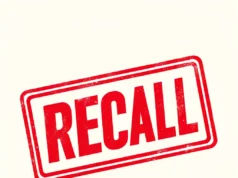
In this digital age, staying informed about the safety of the products we use is crucial. One aspect of product safety is understanding and checking for recalls. Recalls occur when a product poses a potential risk to consumers, whether due to a manufacturing defect, design flaw, or other safety concerns. This article will guide you on how to check if your product has been recalled, helping you ensure the safety of your purchases.
Understanding Recalls
Before delving into the process of checking for recalls, it’s important to grasp the concept of product recalls. A recall is an action taken by a manufacturer or a government agency to remove or correct products that may pose a risk to consumers. Recalls can affect a wide range of products, including automobiles, electronics, toys, food items, and pharmaceuticals. Understanding the significance of recalls will empower you to take proactive steps in safeguarding yourself and your loved ones.
Types of Product Recalls
Product recalls can be categorized into different types based on the nature of the issue. Some common types of recalls include:
- Safety-related recalls: These involve products that pose a direct safety hazard, such as faulty electrical wiring or potential fire risks.
- Health-related recalls: These pertain to products that may have adverse health effects on consumers, such as contaminated food or medications with undisclosed side effects.
- Labeling-related recalls: These occur when product labels contain inaccurate or misleading information, which may lead to misuse or confusion among consumers.
- Quality-related recalls: These address products with quality issues that may not necessarily pose an immediate safety risk but can impact the overall performance or longevity of the product.
Reasons for Product Recalls
Product recalls are initiated for various reasons, all with the aim of protecting consumers from potential harm. Some common reasons for recalls include:
- Manufacturing defects: These are flaws that occur during the production process, resulting in products that do not meet the intended specifications.
- Design flaws: These refer to inherent flaws in the product’s design, making it prone to malfunctions or hazards.
- Contamination or safety concerns: This applies to products that may contain harmful substances or have safety issues that could harm consumers.
- Non-compliance with regulations: Recalls can also occur when a product fails to meet safety or quality standards set by regulatory bodies.
How to Check for Product Recalls
Being proactive in checking for product recalls is essential for ensuring your safety. Here are several avenues to explore when checking for recalls:
Official Government Websites
- Consumer Product Safety Commission (CPSC): The CPSC is a U.S. government agency responsible for protecting consumers from unreasonable risks of injury or death associated with consumer products. Their website provides a comprehensive database of recalls, allowing you to search for specific products or browse through the latest recalls.
- Food and Drug Administration (FDA): If you are concerned about food, drugs, or medical devices, the FDA offers a searchable database of recalls related to these products. This resource can help you stay informed about potential risks and take appropriate actions.
Manufacturer’s Website and Customer Service
- Manufacturer’s Website: Many manufacturers maintain a dedicated section on their website to inform consumers about product recalls. Visit the manufacturer’s website of your product and look for a “Recalls” or “Safety” section. Here, you can find information about recent recalls and instructions on how to proceed if your product is affected.
- Customer Service: Contacting the manufacturer’s customer service directly can also provide you with valuable information about recalls. They can assist you in verifying whether your product has been recalled and guide you through the necessary steps to address the issue.
Importance of Regularly Checking for Recalls
Regularly checking for recalls should be a routine practice for any conscientious consumer. Here’s why it’s crucial:
Protecting Yourself and Your Family
Staying informed about recalls helps you protect yourself and your family from potential harm. By promptly addressing recalls, you can mitigate risks and ensure the safety of your loved ones.
Taking Immediate Action
If you discover that a product you own has been recalled, taking immediate action is vital. Follow the instructions provided by the manufacturer or the relevant government agency to resolve the issue promptly. This may involve returning the product, requesting a repair or replacement, or following specific usage instructions to minimize the risk.
Following the Recall Process
Each recall may have a specific process for resolution. It’s important to follow the recall process outlined by the manufacturer or the relevant government agency to ensure that the issue is adequately addressed. This may involve completing forms, providing proof of purchase, or following specific instructions for returning or disposing of the product.
Common FAQs about Product Recalls
- What should I do if I find out my product has been recalled?
- If you discover that your product has been recalled, follow the instructions provided by the manufacturer or the relevant government agency. This usually involves contacting the manufacturer or returning the product for repair, replacement, or refund.
- How can I stay updated about product recalls?
- To stay updated, regularly check official government websites like the CPSC and FDA for recalls. Additionally, sign up for product alerts and subscribe to manufacturer newsletters or email notifications.
- Are all recalls serious?
- Recall severity can vary. While some recalls address significant safety risks, others may be precautionary measures. Regardless, it’s important to take all recalls seriously and follow the recommended actions to ensure your safety.
- Can I still use a product if it has been recalled?
- It is generally recommended to stop using a recalled product. The recall indicates that the product has potential safety or performance issues that could pose a risk to you or others.
- What should I do if I suspect a product should be recalled but no recall has been issued?
- If you believe a product should be recalled but haven’t found any official information, you can report your concerns to the manufacturer, the CPSC, or the appropriate regulatory authority in your country.
Being aware of product recalls is essential for ensuring consumer safety. By understanding recalls, checking official websites, and staying vigilant, you can protect yourself and your family from potential risks. Remember to take immediate action if you discover that a product you own has been recalled, and always follow the recommended recall process. Stay informed, stay safe.







